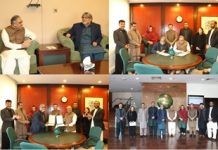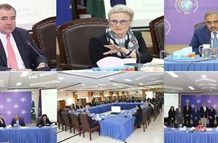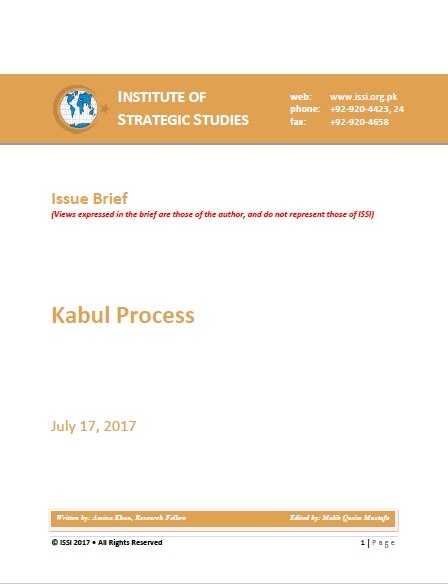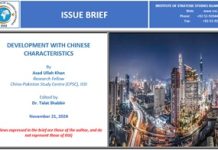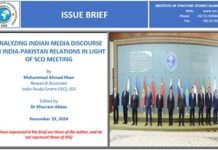In an attempt to “build regional security alliances to counter the threat of terrorism and revive the peace process,”[1] the National Unity Government (NUG) hosted the ‘Kabul Process’ on June 6, 2017. The first Afghan owned and led initiative was an amalgamation of 24 countries, (Pakistan, US, Russia, Iran, Saudi Arabia and India) as well as the UN, EU and NATO aimed at achieving international consensus on fighting terrorism and gaining broader support for the cause. President Ashraf Ghani highlighted that the Kabul initiative was a result of the failure of several “bilateral, trilateral, quadrilateral and multilateral” attempts (including the recently held Moscow initiative) to initiate peace talks with the Afghan Taliban.[2] While the conference was the first of its kind, as it was solely Afghan led and owned, it did not include one of the most important components of the Afghan conflict – the Afghan Taliban.
Despite their exclusion, President Ghani renewed a call for peace talks with the group at a “mutually agreeable” location and expressed that the group would eventually be allowed to open a representative office if significant progress was achieved.[3] However, Kabul’s offer for peace talks came with certain prerequisites such as “recognition of the Afghan constitution, continuity of the reforms of educating and advancing the rights of women, and renunciation of violence and linkages with terrorist groups.”[4] However, the Taliban rejected Kabul’s offer and criticised the initiative as another attempt to “endorse and prolong foreign occupation” of Afghanistan.[5]




